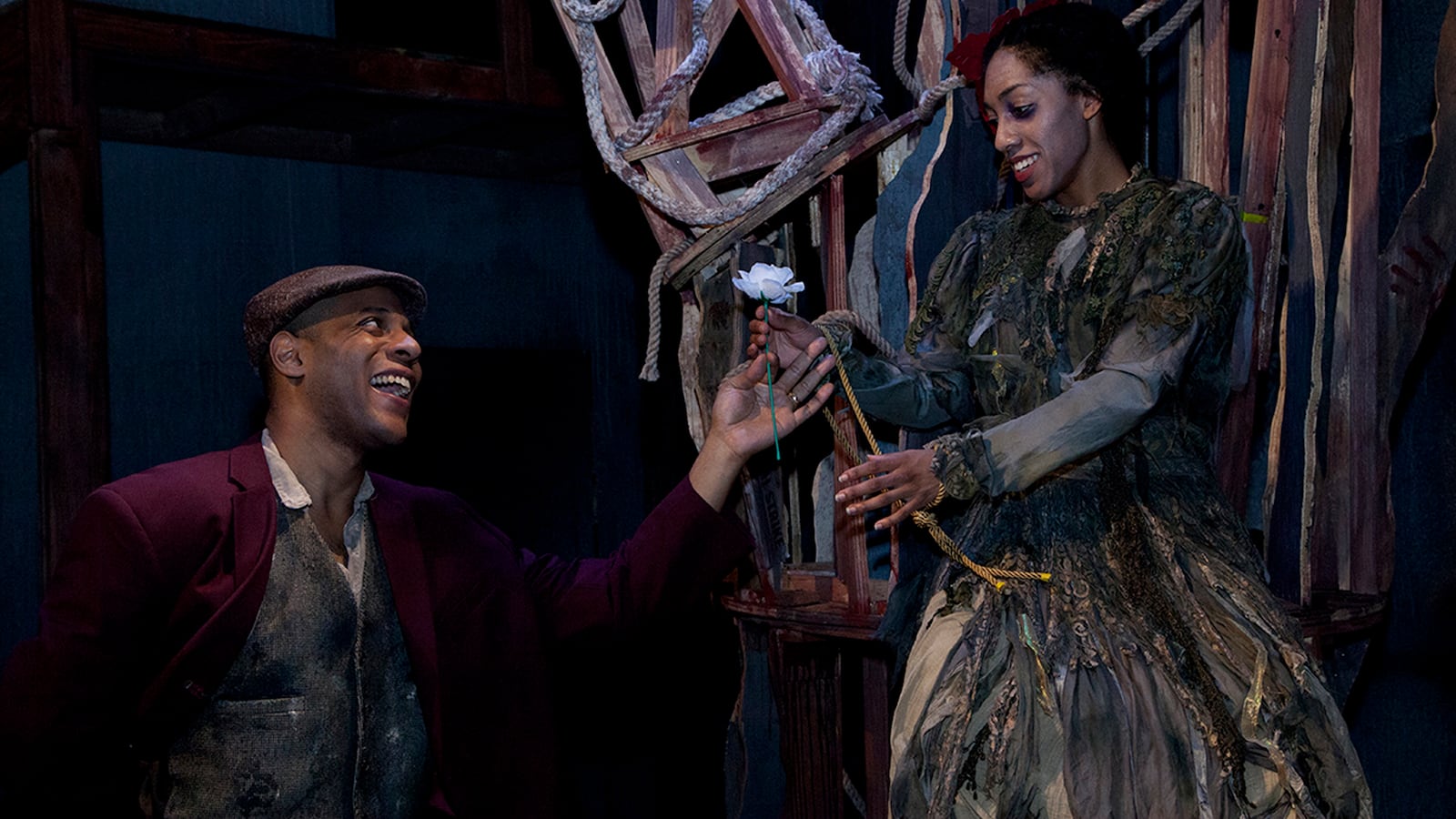What is the price of remembering? Or perhaps the more appropriate question is, what is the weight of forgetting?
Those ideological quandaries and the answers—if not contemplative reflections— are at the heart of the play, A Small Oak Tree Runs Red. Written by LeKethia Dalcoe and directed by Harry Lennix, it follows how one decision drastically alters the lives of Mary Turner (Kyra Riley), Hayes Turner (R.J. Foster), and Sidney Johnson (Yusef Miller) during the Jim Crow era.
Playing at The Billie Holiday Theatre in Brooklyn until March 4, the work pivots between past memories and a purgatory of sorts—a fitting and frustrating metaphor for the characters’ conditions and the systemic inequalities still gripping the black community a century later.
“Purgatory is that holding space, in the story it’s physical, but it’s also in regards to America that hasn’t dealt with the crimes that have been done against the black body for hundreds of years,” Dalcoe told The Daily Beast.
A lover of history, Dalcoe was drawn to the story of Mary Turner, a 19-year-old woman who was eight months pregnant when she was lynched for making “unwise remarks.” (Some 3,437 African Americans were lynched between 1882 and 1951.)
Originally written with an expanded cast of characters, Dalcoe revised the work in 2014 over three weeks as a form of catharsis following Trayvon Martin’s death to focus on the dynamics between the core characters.
“I was angry at the time,” Dalcoe said. “I was hopeless and hopeful that change could come. It was very much from the climate of what was going on over the last four years in regards to our black men, the recordings, the different forms of lynching. I just used a historical narrative to spin it all together.”
After perpetual abuse by their boss, Hampton Smith, Johnson decides the only solution —but more importantly the right solution— is to murder him. Battered but not defeated by the relentless degradation of his manhood, Miller’s portrayal of a man resolute to take back some power over his life and destiny is devastatingly moving.
For Hayes communal and familial responsibilities outweigh the thirst for revenge.
The ideological fault lines between the two men—peace versus violence, wait versus act–echo in the present day, while subverting some contemporary familiars too.
When Johnson lifts his hands in the posture of “hands up don’t shoot,” now synonymous with Black Lives Matter rallies, it is an act of triumph rather than protest or fear. When Mary in a fit of rage calls Johnson an “animal” and a “beast,” he retorts that being labeled either is not an insult but rather an acknowledgement that he is truly free.
While Dalcoe uses gesture and insults to help the characters retain their dignity despite their plight, scripture provides an emotional and spiritual salve to the realities of the atrocities they all have faced.
This is particularly true for Mary as she grapples with the memories that led to her being in purgatory and the realization she may never leave. In Psalm 23, perhaps the most famous psalm in the Bible, she finds solace in verses 4 and 5: “Yea, though I walk through the valley of the shadow of death, I will fear no evil: for thou art with me..."
This past summer, Dalcoe visited the site of Mary Turner’s lynching, an experience she called “overwhelming but peaceful.”
From her visit birthed a critical monologue in which Mary recounts the moments before her lynching. Realizing that death is certain and there’s no kind face in the crowd that might save her and her unborn son from murder, she laments her invisibility. The willingness of bystanders to turn a blind eye to clear and prevalent injustice led to Mary’s murder, and countless others who were lynched and whose names will never be known.
Forgetting the atrocities committed against Turner and marginalized groups remains one of the country’s gravest tragedies. The price of remembering is high; after all, wounds leave scars that sometimes never heal. Still, to remember offers a chance for reflection and with it a chance for a better America.






